- Special Offer
- Bestsellers
- Viagra
- Cialis
- Levitra
- Trial Erection packs 1
- Brand Viagra
- Brand Cialis
- Dapoxetine
- Tadapox
- Sildalis
- Extra Super Viagra
- Extra Super Cialis
- Extra Super Levitra
- Malegra FXT
- Malegra DXT
- Viagra Professional
- Cialis Professional
- Viagra Super Active
- Cialis Super Active
- Kamagra Effervescent
- Viagra Soft
- Cialis Soft
- Female Viagra
- Propecia
- Zithromax
- Doxycycline
- Synthroid
- Accutane
- Clomid
- Nolvadex
- Lexapro
- Amoxil
- Prednisone
- Lasix
- Allergies
- Anti Fungal
- Anti Viral
- Antibiotics
- Doxycycline
- Zithromax
- Cipro
- Amoxil
- Tetracycline
- Flagyl ER
- Ampicillin
- Bactrim
- Erythromycin
- Stromectol
- Brand Amoxil
- Cephalexin
- Augmentin
- Cefixime
- Nitrofurantoin
- Floxin
- Suprax
- Cleocin
- Zyvox
- Biaxin
- Tinidazole
- Keflex
- Cefadroxil
- Ceftin
- Chloramphenicol
- Chloromycetin
- Ethionamide
- Keftab
- Lincocin
- Minocin
- Minocycline
- Myambutol
- Noroxin
- Omnicef
- Roxithromycin
- Sumycin
- Terramycin
- Vantin
- Trimox
- Fucidin
- Ciplox
- Minomycin
- Panmycin
- Clindamycin
- Ketoconazole Cream
- Anxiety
- Arthritis
- Asthma
- Birth Control
- Blood Pressure
- Lasix
- Hydrochlorothiazide
- Furosemide
- Norvasc
- Lisinopril
- Clonidine
- Benicar
- Tenormin
- Hyzaar
- Lopressor
- Inderal
- Diovan
- Toprol XL
- Avapro
- Vasotec
- Coreg
- Cozaar
- Zebeta
- Zestril
- Avalide
- Aceon
- Adalat
- Aldactone
- Altace
- Betapace
- Bystolic
- Calan
- Cardizem
- Cardura
- Coumadin
- Micardis
- Prinivil
- Digoxin
- Dipyridamole
- Doxazosin
- Hytrin
- Innopran XL
- Isoptin
- Lanoxin
- Lozol
- Midamor
- Moduretic
- Nitroglycerin
- Plavix
- Plendil
- Serpina
- Torsemide
- Trandate
- Triamterene
- Vasodilan
- Zestoretic
- Prazosin
- Imdur
- Cholesterol Lowering
- Depression
- Diabetes
- Erectile Dysfunction
- Viagra
- Cialis
- Levitra
- Brand Viagra
- Brand Cialis
- Brand Levitra
- Sildalis
- Silvitra
- Dapoxetine
- Kamagra
- Kamagra Polo
- Kamagra Effervescent
- Kamagra Super
- Malegra FXT
- Malegra FXT Plus
- Malegra DXT
- Malegra DXT Plus
- Tadapox
- Extra Super Viagra
- Extra Super Cialis
- Extra Super Levitra
- Viagra Super Active
- Cialis Super Active
- Levitra Super Active
- Viagra Professional
- Cialis Professional
- Levitra Professional
- Viagra Extra Dosage
- Cialis Extra Dosage
- Levitra Extra Dosage
- Viagra Soft
- Cialis Soft
- Levitra Soft
- Avana
- Top Avana
- Super Avana
- Extra Super Avana
- Tadacip
- Nizagara
- Viagra Plus
- Red Viagra
- Levitra Plus
- Super Viagra
- Super Cialis
- Super Levitra
- Silagra
- Tadalis SX
- Viagra Jelly
- Cialis Jelly
- Levitra Jelly
- Zenegra
- Cialis Sublingual
- Viagra Vigour
- Viagra Sublingual
- Viagra Soft Flavored
- Suhagra
- Sildigra
- Apcalis SX
- Caverta
- Fildena
- Forzest
- Himcolin
- Zudena
- Cialis Black
- Eriacta
- Erectafil
- Tadala Black
- Tadora
- Aurogra
- Super P-Force
- Super P-Force Oral Jelly
- Gastrointestinal
- Hair Loss
- Heart Disease
- Herbals
- Man's Health
- Flomax
- Avodart
- Cardura
- Doxazosin
- Finpecia
- Hytrin
- Levothroid
- Dutas
- Finast
- Rogaine 5
- Noroxin
- Pilex
- Proscar
- VPXL
- Uroxatral
- Speman
- Casodex
- Confido
- Eulexin
- Penegra
- Finax
- Fincar
- Himplasia
- Kamagra Soft
- Kamagra Oral Jelly
- Kamagra Gold
- Kamagra Chewable
- Tadapox
- Malegra DXT
- Malegra FXT
- Dapoxetine
- Vimax
- Levitra Soft
- Sildalis
- NPXL
- Malegra FXT Plus
- Muscle Relaxant
- Other
- Strattera
- Synthroid
- Antabuse
- Seroquel
- Abilify
- Aricept
- Zyprexa
- Neurontin
- Zofran
- Triamterene
- Topamax
- Methotrexate
- Depakote
- Coumadin
- Risperdal
- Lamictal
- Trileptal
- Requip
- Compazine
- Zyloprim
- Dilantin
- Antivert
- Midamor
- Meclizine
- Combivent
- Exelon
- Amantadine
- Haldol
- Isoniazid
- Prograf
- Styplon
- Flonase
- Allopurinol
- Clozaril
- Actonel
- Viramune
- Arava
- Xalatan
- Asacol
- V-gel
- Tulasi
- Albenza
- Sinemet
- Shatavari
- Betoptic
- Brahmi
- Calcium Carbonate
- Septilin
- Chloroquine
- Rocaltrol
- Cyklokapron
- Cytoxan
- Reminyl
- Detrol
- Ralista
- Purim
- Diltiazem
- Dramamine
- Dulcolax
- Duphalac
- Eldepryl
- Phexin
- Epivir-HBV
- Oxytrol
- Ophthacare
- Olanzapine
- Nootropil
- Minomycin
- Mentat DS syrup
- Mentat
- Liv 52
- Hydrea
- Lariam
- Indinavir
- Keppra
- Kytril
- Plaquenil
- Solian
- Kemadrin
- Copegus
- Imdur
- Renalka
- Picrolax
- Naltrexone
- Meldonium
- Kaletra
- Pain Relief
- Prednisone
- Toradol
- Cafergot
- Maxalt
- Pyridium
- Trental
- Diclofenac Gel
- Phenergan
- Periactin
- Elavil
- Mobic
- Motrin
- Naprosyn
- Voltaren
- Aleve
- Voveran
- Voveran sr
- Anacin
- Artane
- Aspirin
- Urispas
- Azulfidine
- Tegretol
- Tizanidine
- Shallaki
- Rumalaya liniment
- Rumalaya gel
- Rumalaya forte
- Rumalaya
- Colospa
- Ponstel
- Pletal
- Nimotop
- Imitrex
- Mestinon
- Lioresal
- Imuran
- Rizact
- Arcoxia
- Skincare
- Accutane
- Retin-A 0,05
- Tretinoin 0,05
- Elimite
- Tretinoin 0,025
- Retin-A 0,025
- Acticin
- Bactroban
- Retino-A Cream 0,025
- Betnovate
- Cleocin Gel
- Fucidin
- Retino-A Cream 0,05
- Eurax
- Differin
- Decadron
- Deltasone
- Medrol
- Omnicef
- Prednisolone
- Prednisone
- Retin-A Gel 0,1
- Benzac
- Phexin
- Minomycin
- Geriforte
- Geriforte Syrup
- Temovate
- Triamcinolone
- Aldara
- Sleep Aid
- Quit Smoking
- Weight Loss
- Woman's Health
- Clomid
- Female Viagra
- Nolvadex
- Female Cialis
- Fluoxetine
- Premarin
- Alesse
- Femara
- Yasmin
- Provera
- Estrace
- Mircette
- Sarafem
- Tamoxifen
- Dostinex
- Cabgolin
- Prometrium
- Arimidex
- Evista
- Levlen
- Diclofenac
- Etodolac
- Flagyl ER
- Levothroid
- Naprosyn
- Pilex
- Xeloda
- V-gel
- Aygestin
- Shatavari
- Serophene
- Danazol
- Ponstel
- Evecare
- Fertomid
- Bimat
- Fosamax
- Mycelex-g
- Ginette-35
- Careprost
- Menosan
- Lukol
- Lady era
- Big Appeal
- Bestina
- Lumigan
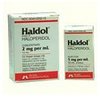 | Haldol (Govotil)Active Ingredient: Haloperidol Haldol is used for treating schizophrenia. Other names for this medication: Akroperidol, Aloperidin, Aloperidolo, Apracal, Avant, Cosminal, Decaldol, Enabran, Esextin, Govotil, Haldomin, Halo decanoato, Halojust, Halomidol, Halomonth, Halop, Haloper, Haloper-ct, Halopéridol, Haloperidolum, Haloperil, Halopidol, Halosten, Haloxen, Halozen, Haridol, Haridol-d, Lemonamine, Limerix, Linton, Lodomer, Neoperidol, Neupram, Norodol, Peldol, Pericate, Peridol, Peridor, Sedaperidol, Senorm, Serenace, Serenase, Sevium, Sigaperidol, Suirolin, Tiplac Show all |
Haldol 10mg
Haldol 5mg
Haldol 1.5mg
INDICATIONS
Haldol is used for treating schizophrenia. It is also used to control symptoms associated with Tourette disorder. Haldol is an antipsychotic agent.
INSTRUCTIONS
Use Haldol as directed by your doctor.
- Take Haldol with a full glass of water.
- Haldol can be taken with or without food.
- Taking too much of this medication can cause a serious heart rhythm disorder or sudden death. Never take more than your prescribed dose.
- It may take several weeks of using this medicine before your symptoms improve. For best results, keep using the medication as directed. Do not stop using Haldol suddenly, or you could have unpleasant withdrawal symptoms. Talk to your doctor about how to avoid withdrawal symptoms when stopping the medication.
Use Haldol as directed by your doctor.
- Take Haldol with a full glass of water.
- Haldol can be taken with or without food.
- Taking too much of this medication can cause a serious heart rhythm disorder or sudden death. Never take more than your prescribed dose.
- It may take several weeks of using this medicine before your symptoms improve. For best results, keep using the medication as directed. Do not stop using Haldol suddenly, or you could have unpleasant withdrawal symptoms. Talk to your doctor about how to avoid withdrawal symptoms when stopping the medication.
- If you miss a dose of Haldol, use it as soon as possible. Use the remaining doses for the day at evenly spaced intervals. Do not take 2 doses at once.
Ask your health care provider any questions you may have about how to use Haldol.
STORAGE
Store Haldol at room temperature, between 59 and 86 degrees F (15 and 30 degrees C). Store away from heat, moisture, and light. Do not store in the bathroom. Do not freeze. Keep Haldol out of the reach of children and away from pets.
MORE INFO:
Active Ingredient: Haloperidol.
Do NOT use Haldol if:
- you are allergic to any ingredient in Haldol
- you are in a coma, have Parkinson disease, or have severe central nervous system depression
- you are taking dofetilide, dronedarone, an H1 antagonist (eg, astemizole, terfenadine), nilotinib, propafenone, sodium oxybate (GHB), or tetrabenazine.
Contact your doctor or health care provider right away if any of these apply to you.
Some medical conditions may interact with Haldol. Tell your doctor or pharmacist if you have any medical conditions, especially if any of the following apply to you:
- if you are pregnant, planning to become pregnant, or are breast-feeding
- if you are taking any prescription or nonprescription medicine, herbal preparation, or dietary supplement
- if you have allergies to medicines, foods, or other substances
- if you have the blood disease porphyria, low white blood cell levels, electrolyte problems (eg, low blood magnesium, low blood potassium), or high or low blood pressure
- if you have a history of dementia, Alzheimer disease, seizures, thyroid problems, or neuroleptic malignant syndrome (NMS)
- if you have heart problems or irregular heartbeat (eg, QT prolongation), or if a member of your family has a history of these conditions
- if you have had high blood prolactin levels or a history of certain types of cancer (eg, breast, pancreas, pituitary), or if you are at risk for breast cancer
- if you are dehydrated, drink alcohol, or if you are regularly exposed to extreme heat.
Some medicines may interact with Haldol. Tell your health care provider if you are taking any other medicines, especially any of the following:
- Certain antiarrhythmics (eg, amiodarone, disopyramide, dronedarone, flecainide, procainamide, quinidine, sotalol), certain antipsychotics (eg, iloperidone, paliperidone, ziprasidone), arsenic, bepridil, chloroquine, cisapride, dofetilide, dolasetron, domperidone, droperidol, gadobutrol, H1 antagonists (eg, astemizole, terfenadine), halofantrine, kinase inhibitors (eg, lapatinib, nilotinib), macrolides or ketolides (eg, erythromycin, telithromycin), maprotiline, methadone, phenothiazines (eg, thioridazine), pimozide, propafenone, certain quinolones (eg, moxifloxacin) or tetrabenazine because the risk of serious heart-related side effects may be increased
- Lithium because the risk of unexpected toxic effects, including weakness, severe tiredness, confusion, or unusual muscle movements, may be increased
- Tramadol because the risk of seizures may be increased
- Azole antifungals (eg, itraconazole) because they may increase the risk of Haldol's side effects
- Rifampin because it may decrease Haldol's effectiveness.
- Carbamazepine because side effects of Haldol may be increased or the effectiveness of Haldol may be decreased
- Anticoagulants (eg, warfarin) or sodium oxybate (GHB) because their actions and the risk of their side effects may be increased by Haldol.
This may not be a complete list of all interactions that may occur. Ask your health care provider if Haldol may interact with other medicines that you take. Check with your health care provider before you start, stop, or change the dose of any medicine.
Important safety information:
- Haldol may cause drowsiness, dizziness, or blurred vision. These effects may be worse if you take it with alcohol or certain medicines. Use Haldol with caution. Do not drive or perform other possible unsafe tasks until you know how you react to it.
- Do not drink alcohol or use medicines that may cause drowsiness (eg, sleep aids, muscle relaxers) while you are using Haldol; it may add to their effects. Ask your pharmacist if you have questions about which medicines may cause drowsiness.
- Do NOT use more than the recommended dose without checking with your doctor.
- Haldol may cause you to become sunburned more easily. Avoid the sun, sunlamps, or tanning booths until you know how you react to Haldol. Use a sunscreen or wear protective clothing if you must be outside for more than a short time.
- Do not become overheated in hot weather or while you are being active; heatstroke may occur.
- Tell your doctor or dentist that you take Haldol before you receive any medical or dental care, emergency care, or surgery.
- NMS is a possibly fatal syndrome that can be caused by Haldol. Symptoms may include fever; stiff muscles; confusion; abnormal thinking; fast or irregular heartbeat; and sweating. Contact your doctor at once if you have any of these symptoms.
- Some patients who take Haldol may develop muscle movements that they cannot control. This is more likely to happen in elderly patients, especially women. The chance that this will happen or that it will become permanent is greater in those who take Haldol in higher doses or for a long time. Muscle problems may also occur after short-term treatment with low doses. Tell your doctor at once if you have muscle problems with your arms; legs; or your tongue, face, mouth, or jaw (eg, tongue sticking out, puffing of cheeks, mouth puckering, chewing movements) while taking Haldol.
- Diabetes patients - Haldol may affect your blood sugar. Check blood sugar levels closely. Ask your doctor before you change the dose of your diabetes medicine.
- Haldol may lower the ability of your body to fight infection. Avoid contact with people who have colds or infections. Tell your doctor if you notice signs of infection like fever, sore throat, rash, or chills.
- Haldol may increase the amount of a certain hormone (prolactin) in your blood. Symptoms may include enlarged breasts, missed menstrual period, decreased sexual ability, or nipple discharge. Contact your doctor right away if you experience any of these symptoms.
- Haldol may rarely cause a prolonged, painful erection. This could happen even when you are not having sex. If this is not treated right away, it could lead to permanent sexual problems such as impotence. Contact your doctor right away if this happens.
- Lab tests, including complete blood cell counts, may be performed while you use Haldol. These tests may be used to monitor your condition or check for side effects. Be sure to keep all doctor and lap appointments.
- Use Haldol with caution in the elderly; they may be more sensitive to its effects, especially uncontrolled muscle movements.
- Haldol should not be used in children younger 3 years; safety and effectiveness in these children have not been confirmed.
- Pregnancy and breast-feeding: If you become pregnant, contact your doctor. You will need to discuss the benefits and risks of using Haldol while you are pregnant. Haldol is found in breast milk. Do not breastfeed while taking Haldol.
All medicines may cause side effects, but many people have no, or minor, side effects.
Check with your doctor if any of these most common side effects persist or become bothersome:
Constipation; diarrhea; dizziness; drowsiness; dry mouth; headache; loss of appetite; nausea; restlessness; stomach upset; trouble sleeping.
Seek medical attention right away if any of these severe side effects occur:
Severe allergic reactions (rash; hives; itching; difficulty breathing; tightness in the chest; swelling of the mouth, face, lips, or tongue); blurred vision or other vision changes; confusion; dark urine; decreased sexual ability; decreased urination; difficulty speaking or swallowing; drooling; enlarged breasts; excessive or unusual sweating; fainting; fast or irregular heartbeat; fever, chills, or persistent sore throat; hallucinations; mental or mood changes (eg, abnormal thinking, agitation, anxiety, depression); missed menstrual period or other menstrual changes; nipple discharge; prolonged, painful erection; rigid or stiff muscles; seizures; severe or persistent dizziness, headache, or vomiting; shuffling walk; uncontrolled muscle movements (eg, of the arms, legs, tongue, jaw, cheeks; tremors; twitching); yellowing of the skin or eyes.
This is not a complete list of all side effects that may occur. If you have questions about side effects, contact your health care provider.
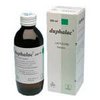 Duphalac Only $30.06 for pillDuphalac is used to treat chronic constipation.More info
Duphalac Only $30.06 for pillDuphalac is used to treat chronic constipation.More info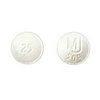 Cytoxan Only $1.15 for pillCytoxan is used to treat cancer of the ovaries, breast, blood and lymph system, nerves (found primarily in children), retinoblastoma (a cancer of the eye found primarily in children), multiple myeloma (cancer in the bone marrow), and mycosis fungoides (tumors on the skin).More info
Cytoxan Only $1.15 for pillCytoxan is used to treat cancer of the ovaries, breast, blood and lymph system, nerves (found primarily in children), retinoblastoma (a cancer of the eye found primarily in children), multiple myeloma (cancer in the bone marrow), and mycosis fungoides (tumors on the skin).More info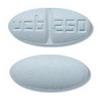 Keppra Only $1.69 for pillKeppra (levetiracetam) is an anti-epileptic drug, also called an anticonvulsant.More info
Keppra Only $1.69 for pillKeppra (levetiracetam) is an anti-epileptic drug, also called an anticonvulsant.More info Risperdal Only $1.23 for pillRisperdal is used for treating schizophrenia or bipolar disorder.More info
Risperdal Only $1.23 for pillRisperdal is used for treating schizophrenia or bipolar disorder.More info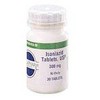 Isoniazid Only $0.37 for pillIsoniazid is used for treating or preventing tuberculosis.More info
Isoniazid Only $0.37 for pillIsoniazid is used for treating or preventing tuberculosis.More info Haldol Only $1.36 for pillHaldol is used for treating schizophrenia.More info
Haldol Only $1.36 for pillHaldol is used for treating schizophrenia.More info